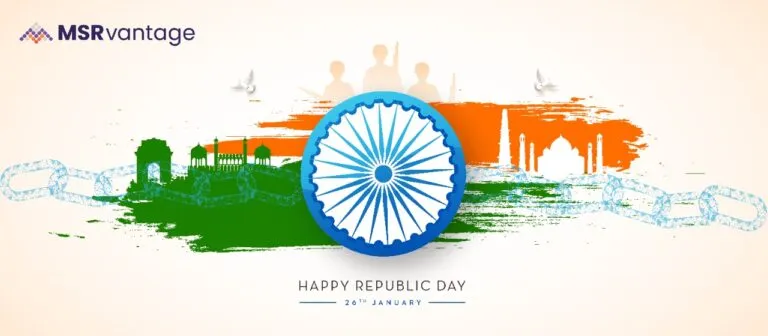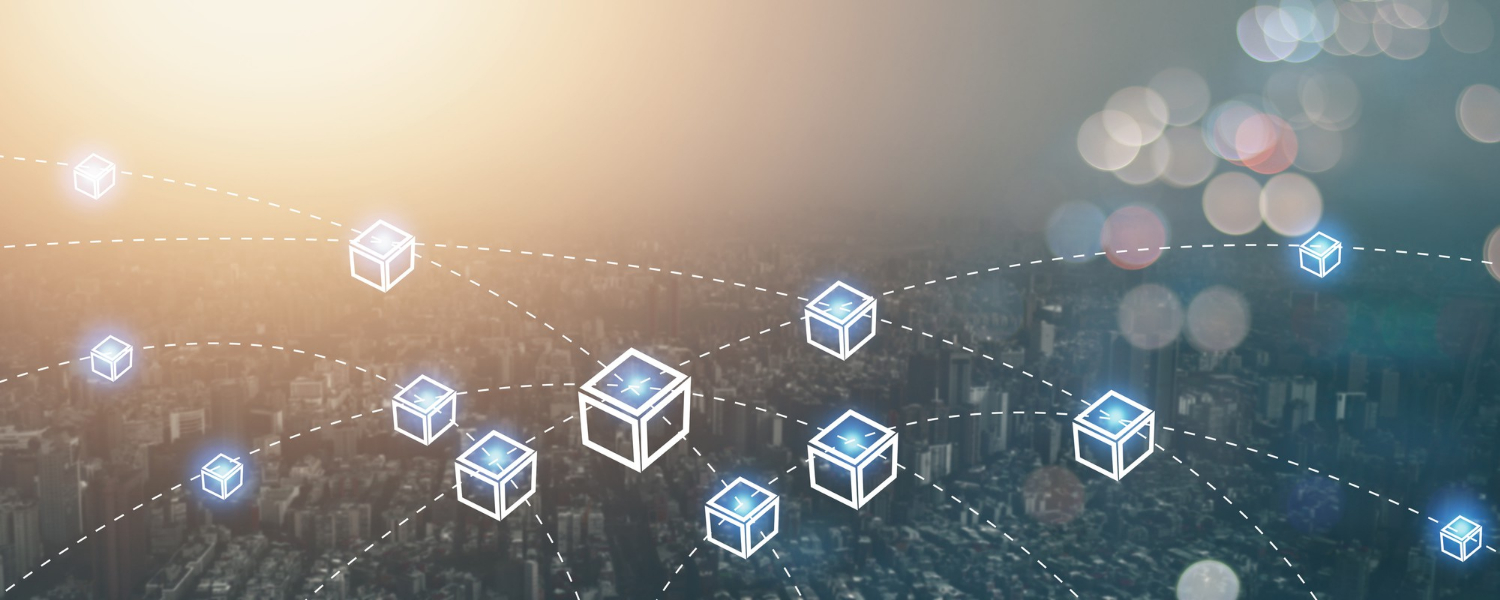In this era of accelerated technological progress, we can see that blockchain is at the tip of everyone’s tongue. You might have heard of blockchain as a technology that powers Bitcoin. How does it do that? What exactly is a blockchain?
A blockchain is a constantly expanding chain of blocks that store information. These blocks are connected and secured using cryptography. Whenever Bitcoin transactions are made, the information is transferred in a peer-to-peer manner to computers that are scattered around the world. These computers then validate the information and the transactions that took place. If the transaction is deemed legitimate, that information is stored in a block within the blockchain. Each blockchain continues to grow and store information relevant to that transaction producing a long record of transactions that is legitimate and permanent. These records or blocks can contain any form of data, like data exchange on currency, real estate, healthcare, etc. Being a decentralized technology, blockchain is controlled by a network of computers or nodes, unlike other databases which are controlled by a central authority. These computers or nodes present over a network can view the blockchain at any time and track the new blocks added to the blockchain. The data once added to a blockchain can neither be altered nor be deleted. Therefore, it is immutable.
Blockchain as a technology holds vast promise for businesses, society, and individuals. When implemented correctly, a blockchain can generate a significant impact by creating a fairer economy and stable markets. The decentralized, open, and cryptographic nature of blockchain allows people to trust the system and transact peer-to-peer. It allows organizations to access the same information with security and confidence. Thus, eliminating the need for trusted intermediaries. With the growth of advanced technologies and the global market, industries face a lot of challenges when it comes to operational costs, transaction speed, efficiency, security, transparency across the supply chain, and growth rate. Blockchain has now become an answer to all these challenges faced by industries worldwide. Companies around the globe are adopting blockchain technology to increase trust, accountability, and transparency.
Opportunities in Blockchain Technology –
Blockchain technology in India is gaining enough traction – mainly within the banking, finance, and insurance industry. Industries like agriculture, healthcare, and automotive have also been actively using blockchain technology in India. According to the 2021 Global Adoption Index by blockchain data platform Chainalysis, India ranks second with regard to crypto adoption worldwide. In recent years, major players are now coming together to form a consortium and realize the benefits of blockchain as an entire industry rather than as individual players. A lot of major Indian players have explored blockchain, so what is the future of blockchain in India?

Digitization is one of the several core factors driving blockchain adoption in India. With the help of blockchain technology, India can considerably advance towards improving the way businesses are done by allowing self-regulation. This allows entities to interact through a trusted medium and, with the help of features like decentralization, accountability, transparency, and immutability would enhance ease of living as well. Across the industries of trade finance, cross-border payments, bill discounting, supply chain financing, customer loyalty, and digital identity areas, blockchain technology in India is seeing experimentation. Many Indian banks have taken the onus of being pioneers in exploring blockchain technology in India. For example, within the trade finance industry, a private Indian bank and a banking group in the Middle East conducted experiments together and successfully made transactions in international trade finance and remittance using blockchain. In the supply chain financing industry, an Indian conglomerate designed a cloud-based application and transformed the supplier-to-manufacturing trade finance transactions. The same was done using a permissioned distributed ledger. In India, a lighting equipment manufacturer made use of blockchain technology to reduce the cycle time of bill discounting for settling its suppliers in real-time. In the e-KYC document management system within the government digital services, this could be big news as a leading stock market exchange is working with many leading private banks to manage KYC documents in blockchain.
In cross-border payment systems, two private banks have come together to test cross-border remittance and trade settlement transactions with blockchain. Many companies and banks are using blockchain for employee loyalty and rewards programs. With an accelerated requirement for automating business processes across organizations, in the next 2-3 years, we will see how Blockchain technology in India will change our society with trust and value.
Indian Government’s Views on the Blockchain –
The Indian government, on Third December 2021, published a National Blockchain Strategy- NSB, which lays the framework for organizations that are developing services based on blockchain technology. The framework is meant to provide an insight into strategies and guidelines for developing a digital platform in India. The Ministry of Electronics and Information Technology (MEITY) and the Government of India jointly worked together on a framework that outlines the usage of blockchain technology within government digital services for e-governance. The Ministry of Electronics and Information Technology (MEITY) and the Government of India jointly has identified 44 essential sectors including pharmaceuticals, identity management, e-Notary services, e-voting, maintaining land records, blockchain-enabled e-solutions, and more, where the technology can be implemented. While the MEITY states that it will unite with other ministries in order to overlook the implementation of this strategy, the NBS doesn’t actually fix timelines for particular platforms. In India, Andhra Pradesh has become the first state to introduce the usage of blockchain technology for land records and transportation. The state is also setting up a Blockchain Centre of Excellence and is set to become the first Blockchain state in India. Additionally, the NITI Aayog (National Institution for Transforming India) is trying to leverage blockchain technology by working on the India-Chain project. The India-Chain project is a common blockchain infrastructure that focuses on utilizing the digital infrastructures that are already present in the country. So what are the views of the Indian government on the blockchain, and how can blockchain in the government sector benefit India?
Having witnessed an increase in the growth of blockchain adoption worldwide, The Indian government is also analyzing blockchain technology in numerous areas like recordkeeping, benefit transfers, smart contracts, asset registration, and many more. The Maharashtra government has been exploring blockchain for implementation in -governance. Other state governments are also teaming up with start-ups and other dominant players in the field of technology to design proof of concepts.
The three of the significant ‘nation impacting’ roles of blockchain in the government sector are-
- Builds trust- Blockchain technology helps citizens to put trust in their government by allowing citizens to perform their personal verification on the claims that the government makes. Transparency and immutability enable citizens to view and verify data effortlessly. Thus, blockchain solves the entire issue of constant distrust among citizens for the government.
- Protects sensitive data- Identity hacks and data breaches have become a crucial challenge for the government, as they have become the common target of hackers globally. Now, this is where immutability, another powerful feature of blockchain technology, comes into the picture. Blockchain strengthens network security by eliminating the risk of single-point failure and data modification. Thus, making the system and the whole nation hack-proof.
- Enhances efficiency and reduces costs- Blockchain technology, when incorporated correctly, can not only reduce the costs but also eliminate redundancy, strengthen security, simplify processes, decrease the audit burden, and maintain data integrity. The application of blockchain in the government sector also helps in accounting and payment systems, as it provides a permanent audit trail and expedited reconciliation.
To realize the dream of blockchain in the government sector and successfully deploy blockchain technology in India, sufficient people with proper knowledge about the potential of blockchain are highly relevant.
Conclusion –
Blockchain technology enables efficient ledger storage in the different and efficient environments along with its other benefits mentioned above in this article. Permissioned or non-permissioned blockchain can be developed based on the application domain. Likewise, Blockchain-as-a-Service authorizes seamless integration of blockchain abilities across a broad range of application domains. Therefore we can conclude that based on how openly the government involves blockchain in their processes, it is either possible or impossible that we get to see a future where the government is decentralized much to become citizen-centric.
We at MSRvantage believe that the future can be different. By delivering trusted, shared access as a capability at the forefront, we enable industries to transform by helping them get all those things that they have been chasing for their enterprise. With our blockchain-enabled products, solutions, and services like smart contracts, track and trace, asset digitization, and rewards & loyalty programs, we support industries in enhancing their business values by supporting them at each and every step of blockchain adoption. Thus, altering the aspects of the industry by accelerating efficiency and delivering an innovative platform.
Recent posts


Cultivating Sustainability: The Role of Traceability Solutions in Revolutionizing Agriculture Practices
In an era where the global population is on the rise and environmental concerns are at the forefront of discussions, the need for sustainable agricultural
Read more 


Transforming Mining: Risk Mitigation with Blockchain Technology
The mining industry is essential to modern life, providing the raw materials for everything from smartphones to infrastructure projects. However, it's also known for its
Read more 


The Power of Supply Chain Mapping Using Blockchain in Mining
The mining industry is a complex and critical sector that forms the backbone of many global supply chains. It encompasses the extraction, transportation, and processing




